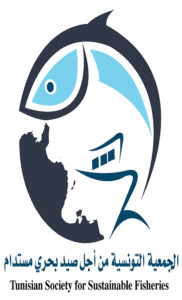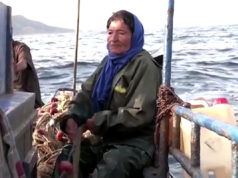Rome, July 7, 2024 – At the 2nd World Small-Scale Fisheries Summit, held at the FAO headquarters in Rome from July 5 to 7, 2024, the Tunisian Society for Sustainable Fishing issued a crucial call for the creation of a maritime zone reserved for small-scale fishing. This call, titled “For Sustainable Small-Scale Fishing: Call for the Creation of a Reserved Maritime Zone,” seeks the support of partners and decision-makers in the sector for an initiative that could transform the sustainability of small-scale fishing in the Mediterranean region and beyond.
Objectives and Justifications of the Call
- Support for Small-Scale Fishing and Local Communities:
Small-scale fishing plays a vital role in the economic, social, and cultural contexts of the Mediterranean. By reserving a specific maritime zone for this activity, the Tunisian Association for Sustainable Fishing aims to ensure equitable access to fishery resources for artisanal fishers while protecting their livelihoods and traditions. - Protection of Marine Ecosystems:
In accordance with the FAO’s guidelines on small-scale fisheries, the establishment of this reserved zone will minimize negative impacts on marine habitats and preserve biodiversity. The exclusive use of passive and non-destructive gear will align small-scale fishing practices with marine conservation objectives. - Sustainable Management and Conservation Measures:
The management of this zone will involve active surveillance and participatory control measures to ensure the regeneration of fish stocks and the long-term sustainability of fisheries. Data collection, the integration of local ecological knowledge, and adaptation to climate change will be key elements of this management.
Implementation Proposal
- Delimitation of the Zone:
The reserved zone will include maritime areas of gulfs, bays, and the 3-mile coastal strip. This delimitation will allow for specific and targeted resource management. - Regulation and Surveillance:
Surveillance and control systems will be established, including participatory mechanisms with local fishers to ensure compliance with the rules. Sanctions will be applied in cases of non-compliance. - Engagement of Fishers and Communities:
Fishers will be actively involved in the management, data collection, and surveillance processes, ensuring a participatory and inclusive approach. Training and technical assistance will be provided to improve sustainable fishing practices and promote innovations in the small-scale fishing value chain. - Adaptation to Climate Change:
Specific strategies will be developed to help small-scale fishing communities adapt to the impacts of climate change, ensuring their resilience and the sustainability of their activities. - Promotion of Women’s Participation and Gender Equity:
Initiatives will be implemented to ensure the equitable participation of women in decision-making and activities related to small-scale fishing, in line with the objectives of the RPOA-SSF.
The Tunisian Society for Sustainable Fishing emphasized the crucial importance of this initiative to ensure a sustainable future for our fishing communities and to protect the fragile marine ecosystems of the region. The association firmly opposed the establishment of offshore fishing ports welcoming trawlers in regions such as gulfs, which are rich in biodiversity and have a vast, shallow continental shelf.
This urgent call, distributed during the summit, seeks the action of competent authorities and partners for the implementation of this initiative in accordance with the principles of the RPOA-SSF and international guidelines on small-scale fishing. The Association remains available for any additional information and to discuss the implementation modalities of this proposal.






